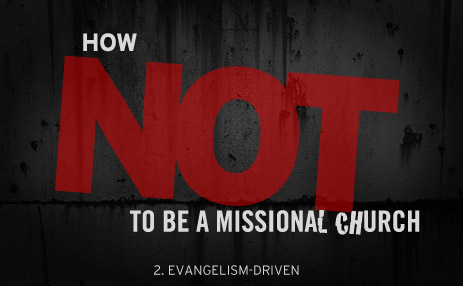![]() When I announced I’m deleting my Facebook account this week, the inquiries started flooding in: “Why are you deleting it?” “Isn’t it good for ministry contacts?” “Can you elaborate on this?” I figured I would share my reasoning at greater length than 140 characters (shocker, I know). Honestly, I find it kind of weird that people were so curious about this, but maybe that reflects my ignorance of the merits of FB. One warning, my reasons may not be your reasons. In other words, I’m not advocating that everyone “quit FB.” Like anything, it can be used for good or for ill, responsibly or irresponsibly. Here are my reasons for quitting FB (in no particular order):
When I announced I’m deleting my Facebook account this week, the inquiries started flooding in: “Why are you deleting it?” “Isn’t it good for ministry contacts?” “Can you elaborate on this?” I figured I would share my reasoning at greater length than 140 characters (shocker, I know). Honestly, I find it kind of weird that people were so curious about this, but maybe that reflects my ignorance of the merits of FB. One warning, my reasons may not be your reasons. In other words, I’m not advocating that everyone “quit FB.” Like anything, it can be used for good or for ill, responsibly or irresponsibly. Here are my reasons for quitting FB (in no particular order):
#1 Reason I Quit Facebook
I want to streamline my communication an use my time wisely. Although I’m not an avid user of FB, I have noticed that it asks me for a lot of time: 1) Accept Friends (that I will never talk to) 2) Join Events (that I rarely go to) 3) Participate in Causes (i know nothing about) 4) Correspond with people (who I can email) 5) Comment on someone’s status, etc. As a regular emailer, Blogger and Twitter user, I have enough outlets for communication and correspondence. Add to that the growing social community sites that require my time (Acts 29, GCM Collective, Austin City Life), and I’ll probably be eliminating something else very soon.
#2 Reason I Quit FB
I see through the facade of multitasking and am concerned about its effect on my mind. A number of years ago I read a helpful article in Time on the illusion of multitasking. The article argued that it is neurally impossible to multitask. The brain can only focus on one thing at one time. When we multitask, we are actually dividing mental energy in lots of little bits, which slowly downgrades attention span and focused reflection:
“Decades of research (not to mention common sense) indicate that the quality of one’s output and depth of thought deteriorate as one attends to ever more tasks.”
If you don’t think this is true, just compare your pre-social media and post-social media devotional life. I want to cultivate a mind that can focus well on reading, writing, meditating, and thinking well and for the glory of God.
#3 Reason I Quit FB
I will be judged and rewarded (not rejected or accepted) by God on my use of time. The Scriptures are clear about our use of time, that is should be weighed (Lk 14:28), redeemed (Col 4:5), and not squandered (1 Cor 3). The older I get, the more I want to use my time for what matters most. I want to build rewards in heaven, not accumulate praise on earth. I do not want to be governed by efficiency but by love, a love compels me to eliminate some social media so that I can spend more undivided time with my family, church, and friends. I want to steward well the grace God has entrusted to me. This means a more focused life.
#4 Reason I Quit FB
I want to deepen in real friendship and community not chase dopamine bursts of false significance. After seeing The Social Network, I wrote a post about the The Social Network & the Decline of Friendship. In it confessed my tendency towards preferring the convenience of friends we can turn off over the inconvenience of friends we can’t. We prefer the dopamine rush of a virtual friend’s text, tweet, or FB message over the sacrifice and love of investing in a real friend’s joys, hardships, and concerns.
In summary, this is probably a decision that is part of new line of decision-making that will spill over into next year, a slow year. A year (and hopefully many years) of rich community, significant friendships, relished family life, deep thinking and devotion, and a more rewarding life all the way round.


 As the holidays approach, many of us are increasingly aware of our budget limitations. We nod at the hope Retailers offer through early bird incentives, knowing its just not enough for Christmas this year. There’s an acute national sense that we just won’t be able to give as many Christmas gifts (or as expensive ones) this year. My family is drawing names to give one gift to a family member instead of showering one another with gifts from everyone this year.
As the holidays approach, many of us are increasingly aware of our budget limitations. We nod at the hope Retailers offer through early bird incentives, knowing its just not enough for Christmas this year. There’s an acute national sense that we just won’t be able to give as many Christmas gifts (or as expensive ones) this year. My family is drawing names to give one gift to a family member instead of showering one another with gifts from everyone this year.